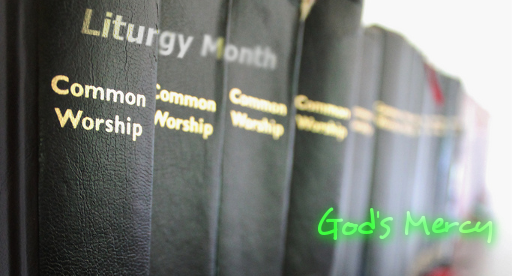Not too many years ago, for an application form, I had to describe my understanding of the Christian faith. More particularly, I was asked to describe how I understood the role of the death of Christ (and, therefore, of his resurrection). This is part of the answer I wrote:
(…) the defeating of death works as a warrant of Jesus’s divine nature and that God can indeed grant us eternal life.
And that was it. That was all I said about the point of resurrection.

Nothing about Christ continuing His ministry of intercession today. Nothing about the importance of Christ’s human (and bodily) nature. To me, all that mattered, in the resurrection, was that it was a proof of the claims Christ had made so far. A proof that he was who he claimed to be.
The tomb was empty solely that we may believe.
As if there hadn’t been plenty of other miracles up to that point, sufficient for our belief. Or, taking it from another perspective, if I don’t believe the miracles so far, there’s no way I’m going to believe the resurrection happened. I mean, Thomas Didymus couldn’t believe it until he saw it himself!
The very notion that the Empty Tomb is the proof for the claims of Christianity is nonsensical. Now, this does not mean that the historicity of the Empty Tomb does not matter – of course it does. If Christ did not rise from the dead, it would discredit his own claims (as they have been recorded). But it is a mistake to consider it as the main historical event upon which hinges the truthfulness of Christianity; and I believe it is therefore also a mistake to focus evangelistic apologetics on this particular event.
Now, the importance of resurrection is not what I want to focus on here. Here’s what matters here: I used to think the resurrection had little incidence for us today, at least when compared to Christ’s death itself. That opinion changed. Not as a traumatic experience, but as an exciting and bewildering eye-opening. It was good. This is not necessary true of all theological adjustments – particularly those that confront us to our sins – although, in my experience, it has generally been just that. Good. A relief of sorts. Because even when that new opinion diminishes our self-perception, it magnifies our perception of God and brings us closer to him.
So what I would like to say is this: theology is not fixed. Opinions can change. And we should be ready to re-assess our opinions, particularly about those things we believe do not matter. In my case, there are still a fair amount of matters of doctrine and practice I agree with but which I believe matter little (e.g., the virginity of Mary, the historicity of most of the Old Testament, glossolalia, the use of vestments, etc.). But for those, I’m ready to have my eyes opened.
Does that mean our personal theology should be subject to mere whims, always in flux and never fixed? No. There are some things which we can determine after careful consideration. As far as those are concerned, we should not have the arrogance to say that our way is the only way, but we should be able to assert them with confidence.
What matters here is that we’re not holding on to our old beliefs through sheer pride. We can get it wrong – and I certainly do sometimes. Let us simply recognise it.


